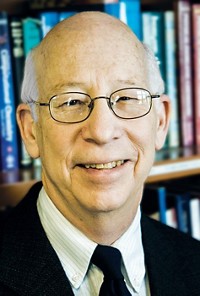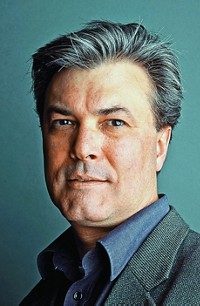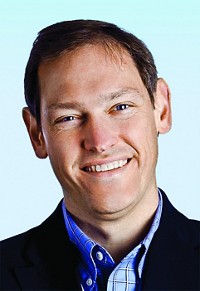Advertisement
Grab your lab coat. Let's get started
Welcome!
Welcome!
Create an account below to get 6 C&EN articles per month, receive newsletters and more - all free.
It seems this is your first time logging in online. Please enter the following information to continue.
As an ACS member you automatically get access to this site. All we need is few more details to create your reading experience.
Not you? Sign in with a different account.
Not you? Sign in with a different account.
ERROR 1
ERROR 1
ERROR 2
ERROR 2
ERROR 2
ERROR 2
ERROR 2
Password and Confirm password must match.
If you have an ACS member number, please enter it here so we can link this account to your membership. (optional)
ERROR 2
ACS values your privacy. By submitting your information, you are gaining access to C&EN and subscribing to our weekly newsletter. We use the information you provide to make your reading experience better, and we will never sell your data to third party members.
Synthesis
Elias J. Corey Award for Outstanding Contribution in Organic Synthesis by a Young Investigator
January 1, 2007
| A version of this story appeared in
Volume 85, Issue 1
Sponsored by the Pfizer Endowment Fund
Hydrogenation is one of chemistry's most widely used catalytic reactions. Usually it involves the formation of carbon-hydrogen bonds. At the University of Texas, Austin, chemistry professor Michael J. Krische and coworkers have developed a new class of hydrogenations that enable formation of carbon-carbon bonds. In these reactions, two or more unsaturated organic molecules are exposed to hydrogen gas in the presence of a metal catalyst to furnish a single, more complex molecule.
According to experts familiar with the work, Krische's hydrogen-mediated C-C bond formations break "conventional dogmas" by taking one of organic chemistry's "oldest and most important reactions in a powerful new direction." These reactions, a colleague says, have caused "all chemists to view hydrogenation differently." Prior to Krische's work, C-C bond formation under hydrogenation conditions had been observed only in alkene hydroformylation and Fischer-Tropsch reactions, which involve coupling to carbon monoxide.
Krische, 40, received a bachelor's degree in chemistry from the University of California, Berkeley, in 1989. He spent a year abroad in Europe as a Fulbright Fellow before beginning his Ph.D. training at Stanford University, which he completed in 1996. After a postdoctoral stint in France, he began his independent academic research career as an assistant professor at Austin in 1999, where he earned direct promotion to full professor in 2004.
Asked who influenced him most in the development of his career, Krische credits three outstanding mentors. First, as an undergraduate at UC Berkeley, Krische worked in the chemistry lab of the late professor Henry Rapoport. There, he says, "I learned the value of practicality; that chemistry is just as much a craft as it is a science." His Ph.D. adviser was Stanford University chemistry professor Barry M. Trost, a champion of the concept of atom economy, now a central tenet of green chemistry. "In our own chemistry, practicality and atom economy are guiding principles," Krische says. Finally, during postdoctoral studies with Nobel Laureate Jean-Marie Lehn at Universit?? Louis Pasteur, in France, "I had the privilege to work with a visionary scientist who, in what many now consider the heyday of synthetic organic chemistry, went in a very different direction. Venturing off the beaten path is a daunting but necessary step in launching a distinctive program of research."
Indeed distinctive, Krische's research is based upon a simple yet profound mechanistic question: Can reactive intermediates arising transiently in catalytic hydrogenation be intercepted and rerouted to products of C-C coupling? The pursuit of this question has led to growing family of C-C bond-forming hydrogenations. According to colleagues, these transformations add "a new chapter to one of the most well-studied and economically significant catalytic processes known." Says Krische, "Because virtually all organic molecules incorporate hydrogen in their structure, they may be envisioned to derive via hydrogenative coupling of unsaturated precursor fragments."
Only seven years into his independent career, Krische already has collected a multitude of awards. They include the Solvias Ligand Prize (2006), the Japanese Society of Synthetic Chemistry Lectureship on Organic Synthesis (2005), the Johnson & Johnson Focused Giving Award (2005), an Alfred P. Sloan Research Fellowship (2003), a Camille Dreyfus Teacher Scholar Award (2003), the Cottrell Scholar Award (2002), a Lilly Grantee Award (2002), the Frasch Foundation Award in Chemistry (2002), and a National Science Foundation CAREER Award (2000). Krische also has received awards in recognition of undergraduate teaching and, outside of chemistry, is an accomplished musician. As a colleague put it, "Mike is a marvelous individual; Mike's passion is chemistry, but he is not one-dimensional."
The award address will be presented before the Division of Organic Chemistry.—Maureen Rouhi






Join the conversation
Contact the reporter
Submit a Letter to the Editor for publication
Engage with us on Twitter